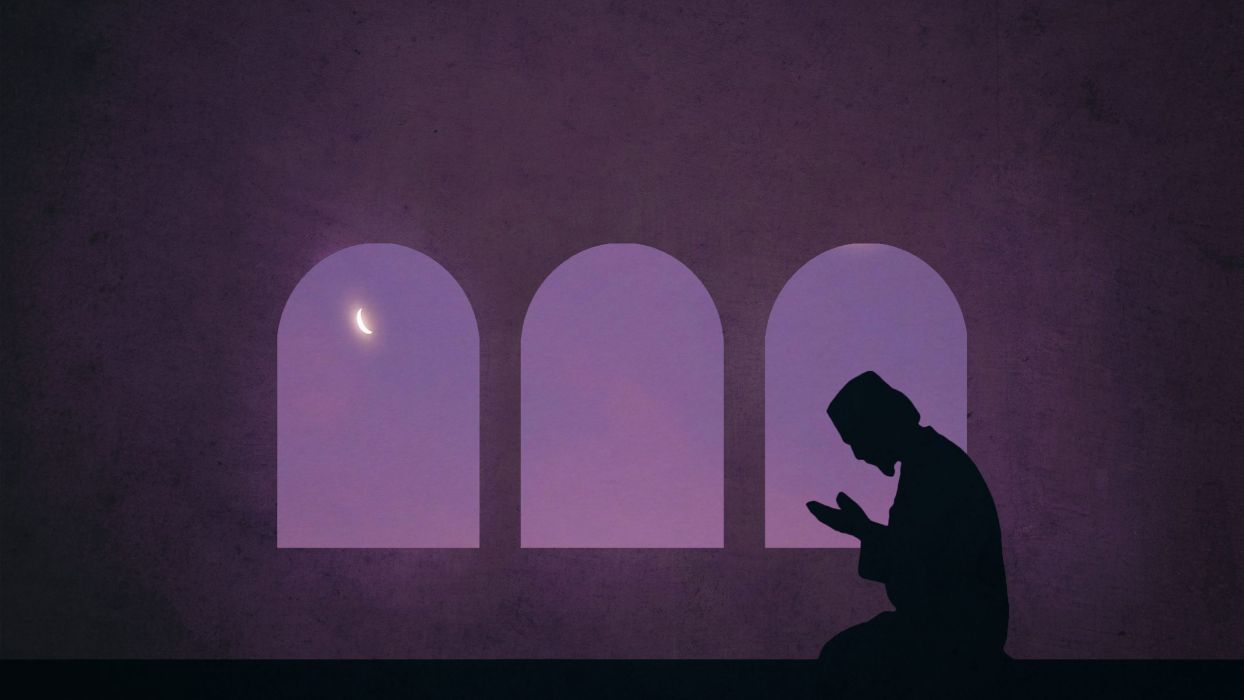Dividing the Night Prayer during Ramaḍān
Imām Muḥammad Nāṣir al-Dīn al-Albānī

Questioner: That which takes places now O Shaykh—during the last ten nights of Ramaḍān—is that they (the people) divide the (night) prayer1 into the first part of the night [praying a portion of it] and the last part of the night [praying another portion at the end of the night], and this has become a common practice for them.
Imām al-Albānī: This is an innovation.
Questioner: We want to establish the Sunnah and make it easy for the people, so how should we do this?
Imām al-Albānī: You should pray earlier, ʿUmar ibn al-Khaṭṭab said, “those who delay it (the night prayer) are better”, meaning, when he (ʿUmar ibn al-Khaṭṭāb) ordered Ubay ibn Kaʿab to lead the people in the night prayers after the ʿIshāʾ prayer, and he (Ubay ibn Kaʿab) did this, thereafter ʿUmar ibn Khaṭṭāb whilst leaving to look for something said, “what a good innovation this is, those who have slept from it (the night prayer) are better than those who have established it because of their desire to offer the night prayer towards the end of the night whilst the people establish it in the beginning (of the night)2”.
Questioner: So the affair should remain the same as it was before the the (last) ten days? [i.e. one night prayer, without dividing it, either starting with it right after ʿIshāʾ or delaying it towards the end of the night]
Imām al-Albānī: Yes.
Arabic source:
سلسلة الهدى والنور رقم 3٧١٩
السائل : ما يحدث الآن يا شيخ في مضان في العشر الأواخر ، يقسمون الصلاة ،صلاة القيام في أول الليل وفي آخره ، وأصبح هذا يعني نظام دائم ؟
فأجاب الشيخ رحمه الله : بدعة
فقال السائل : كيف يكون يعني إذا أردنا أن نقيم السنة ، ونخفف عن الناس فكيف نفعل؟
قال الشيخ : تبكرون كما قال عمر : والتي يؤخرونها أفضل يعني هو أمر أبي بن كعب أن يقيم صلاة القيام بالناس بعد صلاة العشاء ففعل ولما خرج يتحسس قال نعمت البدعة هذه والتي ينامون عنها أفضل .
قال السائل : يعني يبقى الحال على ما هو قبل العشر
قال الشيخ: نعم
Endnotes:
- The people term the nightly prayers as Tarāwiḥ, Taḥajjud, Qiyām al-Layl etc. The fact of the matter is that all those terms mean the same thing, which is: the night prayer. There is no difference between them except in the literal meaning of the words, as for the legislative meaning, then they have one and the same meaning (night prayer).
- Innovation here as the scholars have explained is not the same innovation of which the prophet (صلي الله عليه وسلم) warned against when he said, “and every innovation is misguidance, and every misguidance is in the fire”, rather the innovation which is referred to here is the linguistic meaning of the word bidʿah (innovation).
- Source: Silsilat al-Hudā wa-al-Nūr #719
Translated by: Munīb al-Ṣumālī












